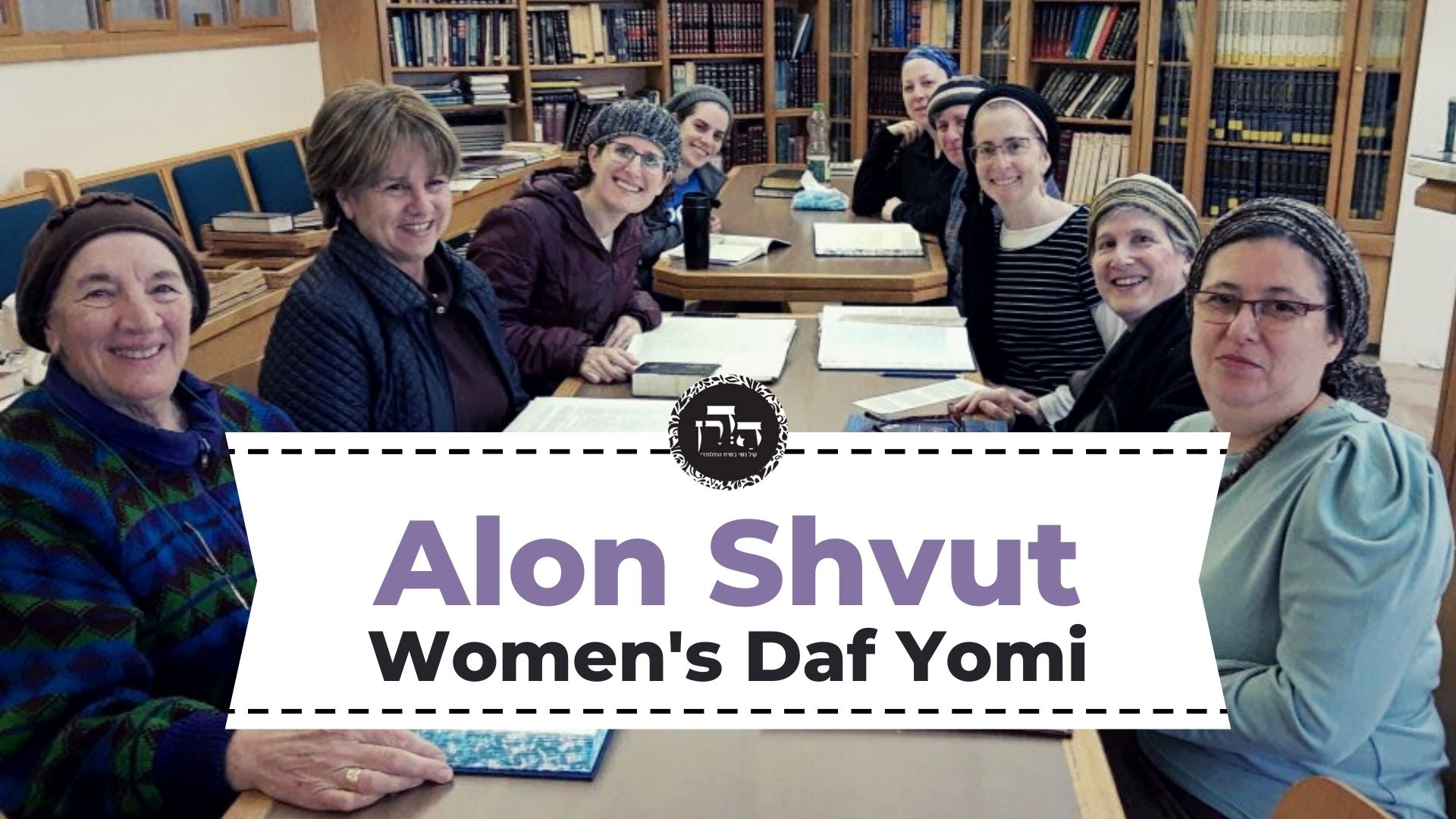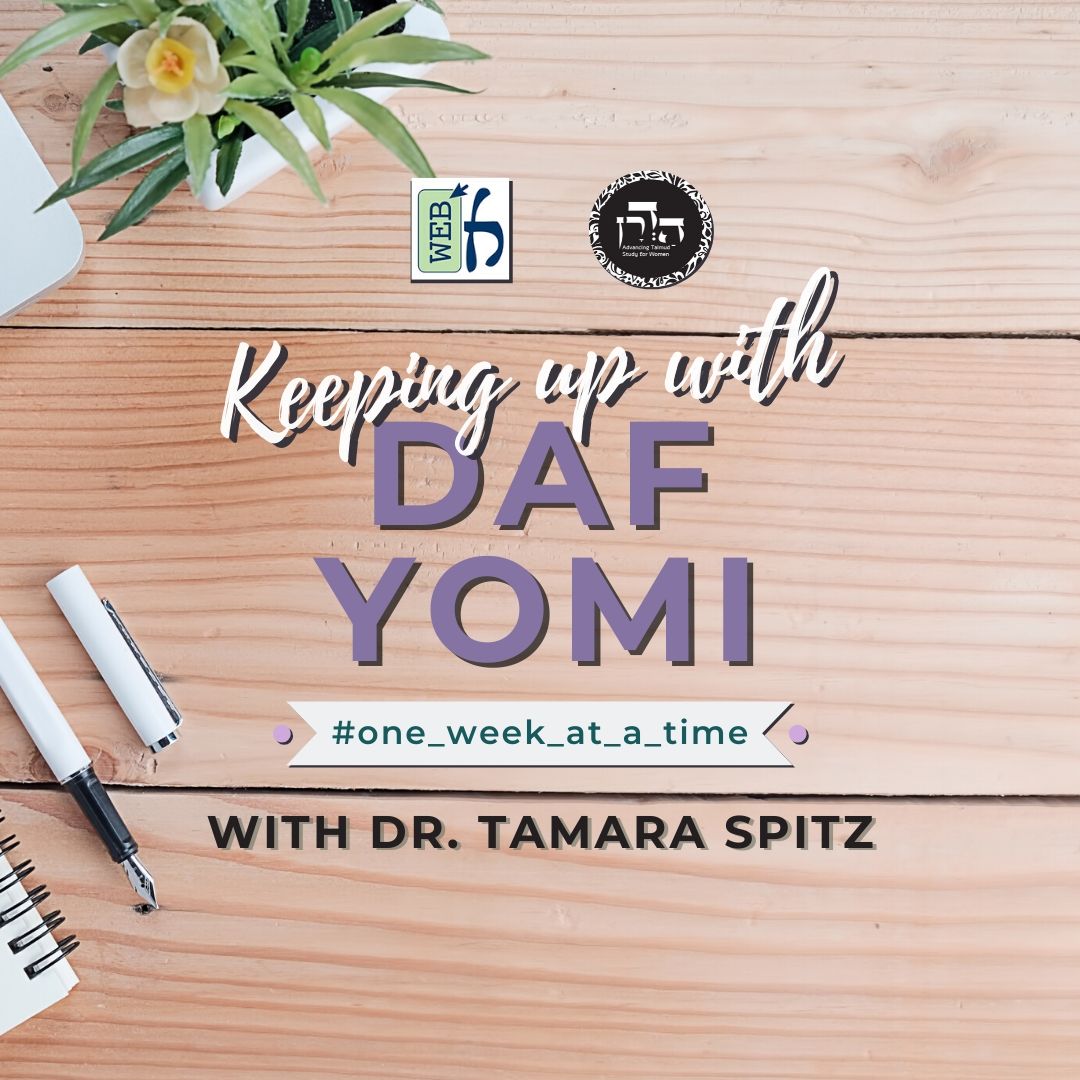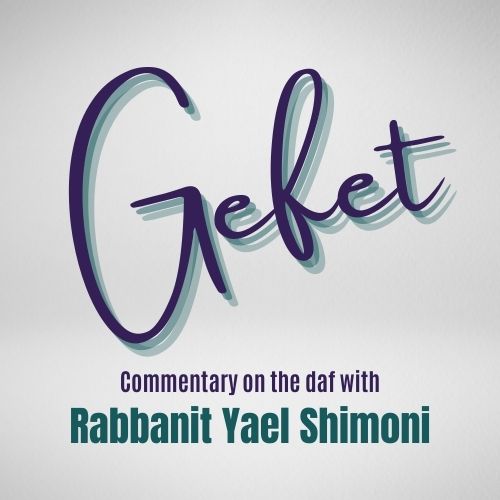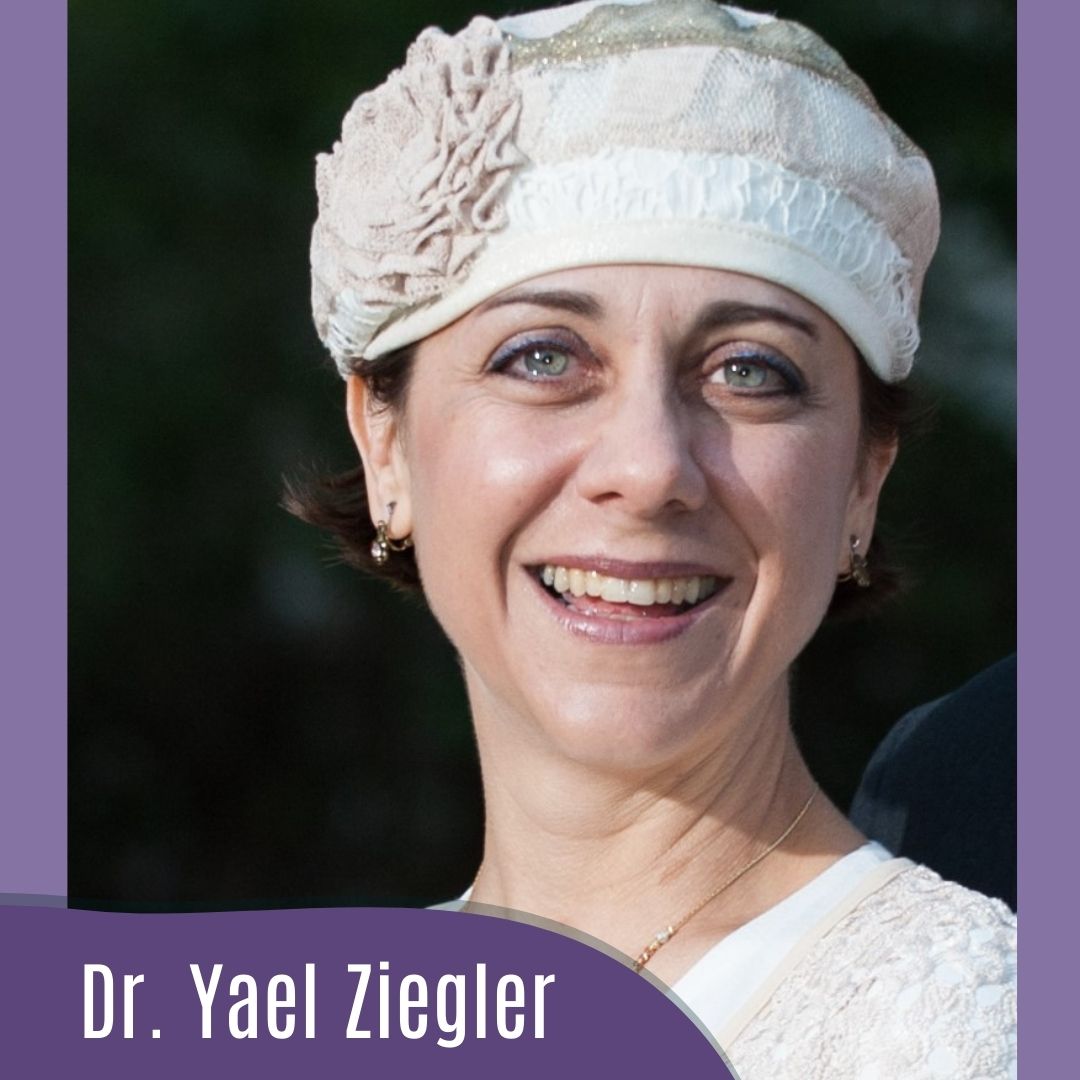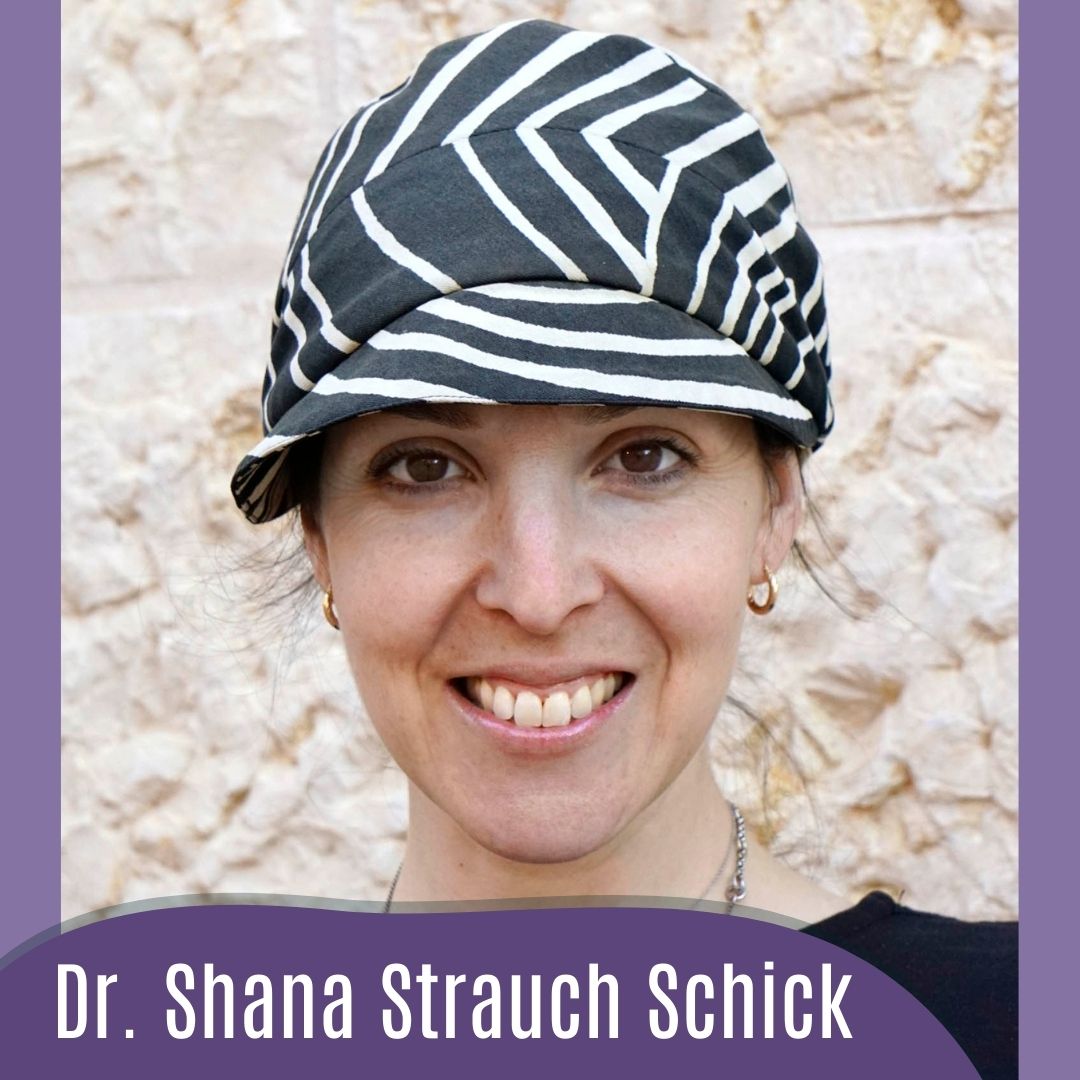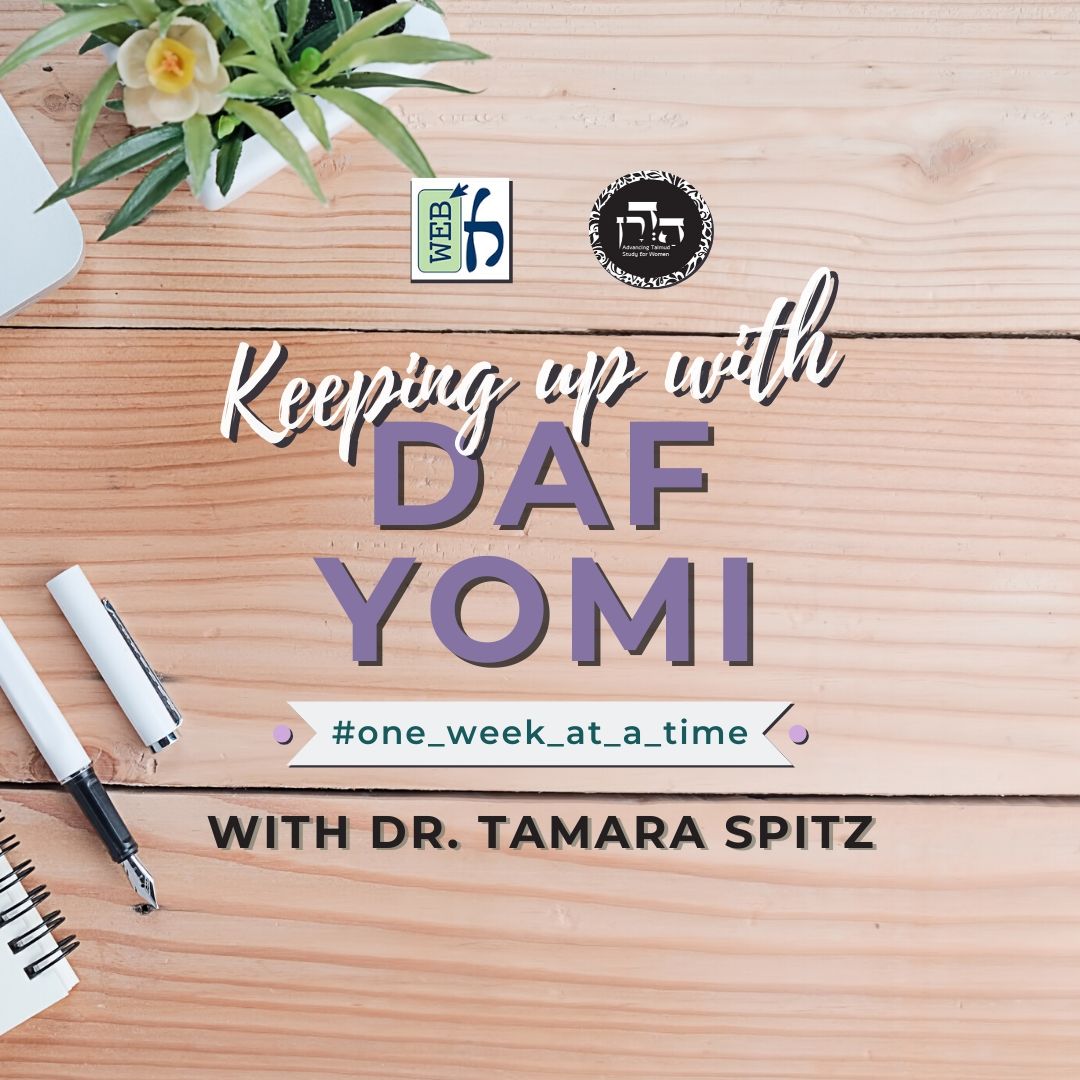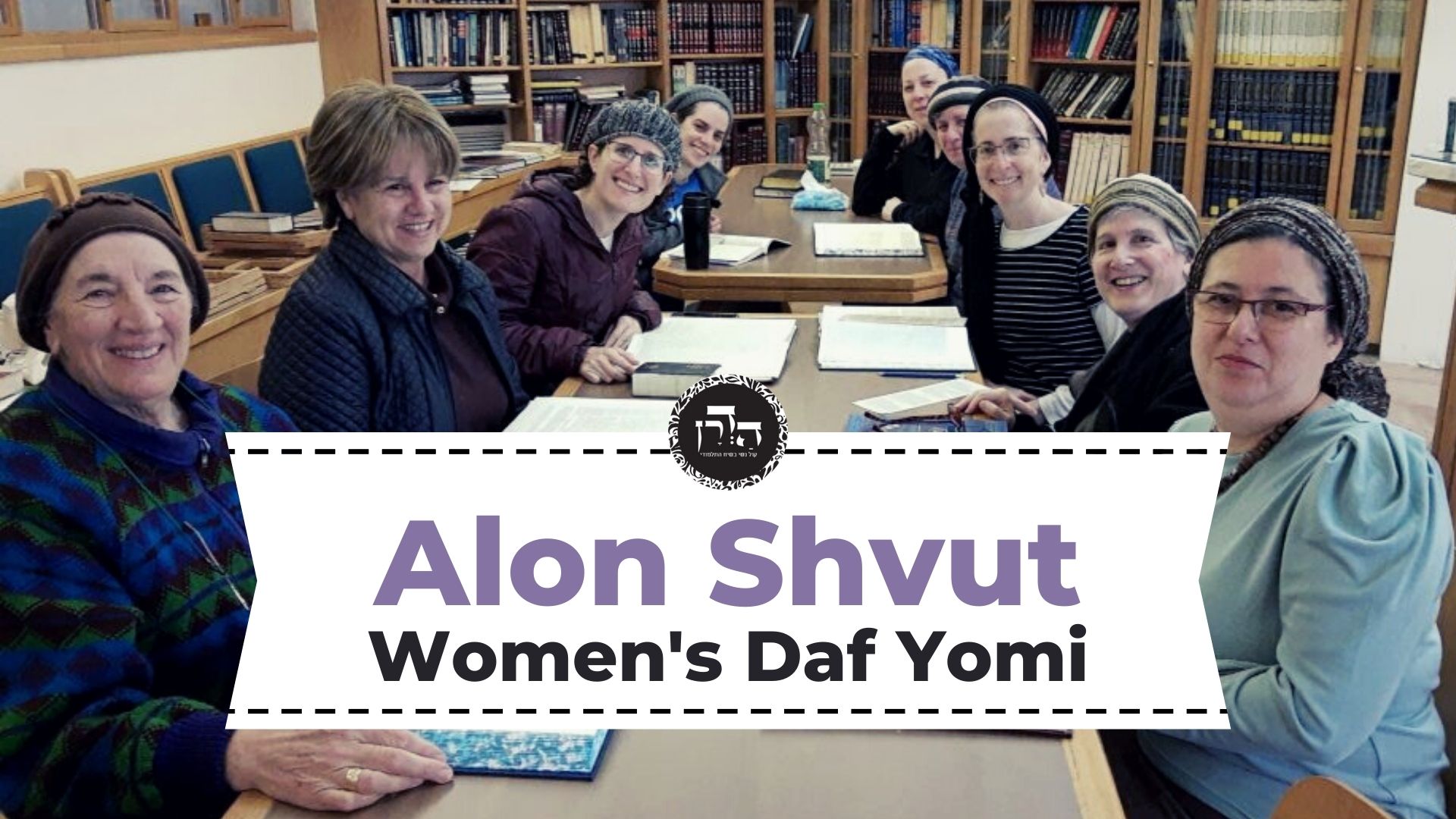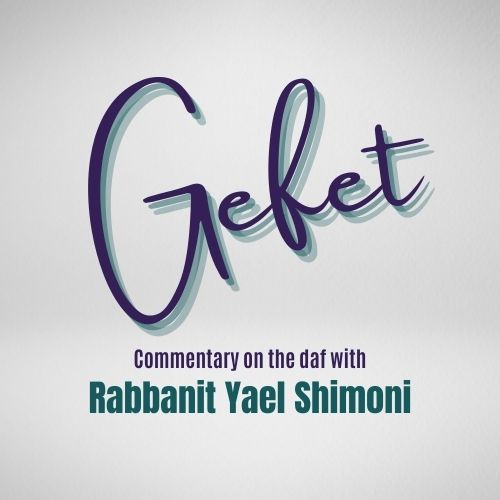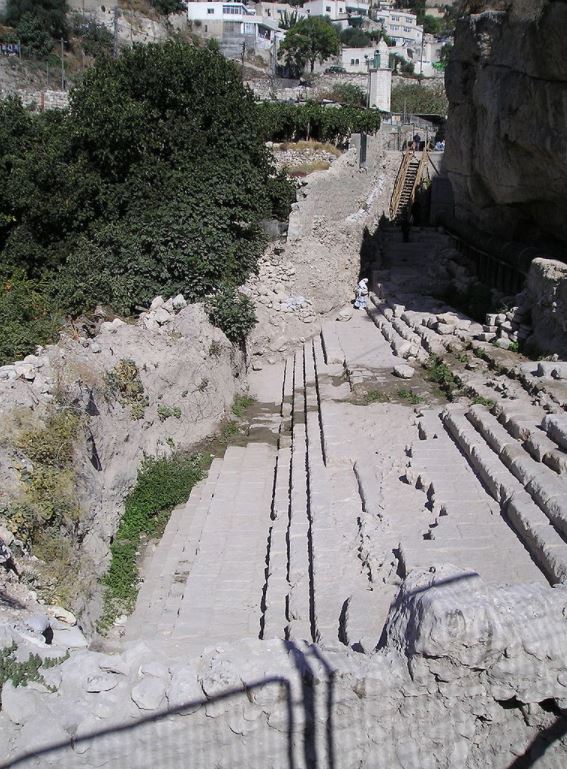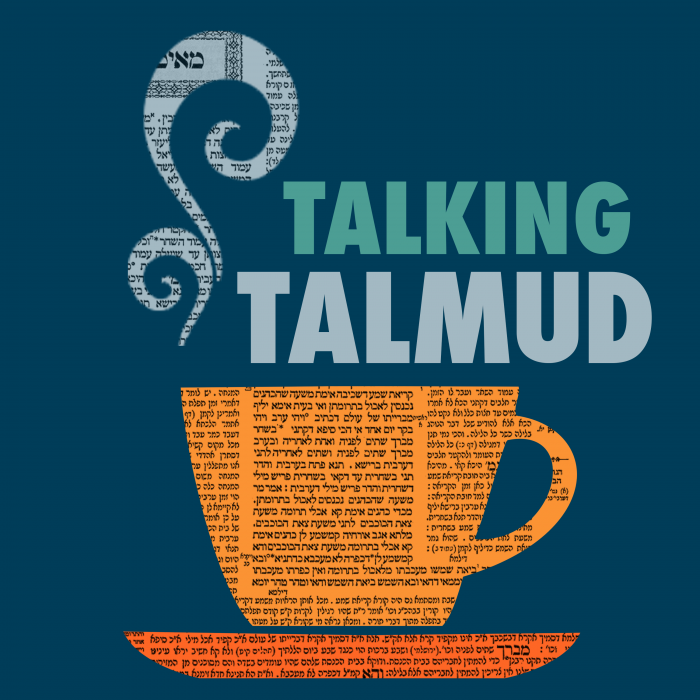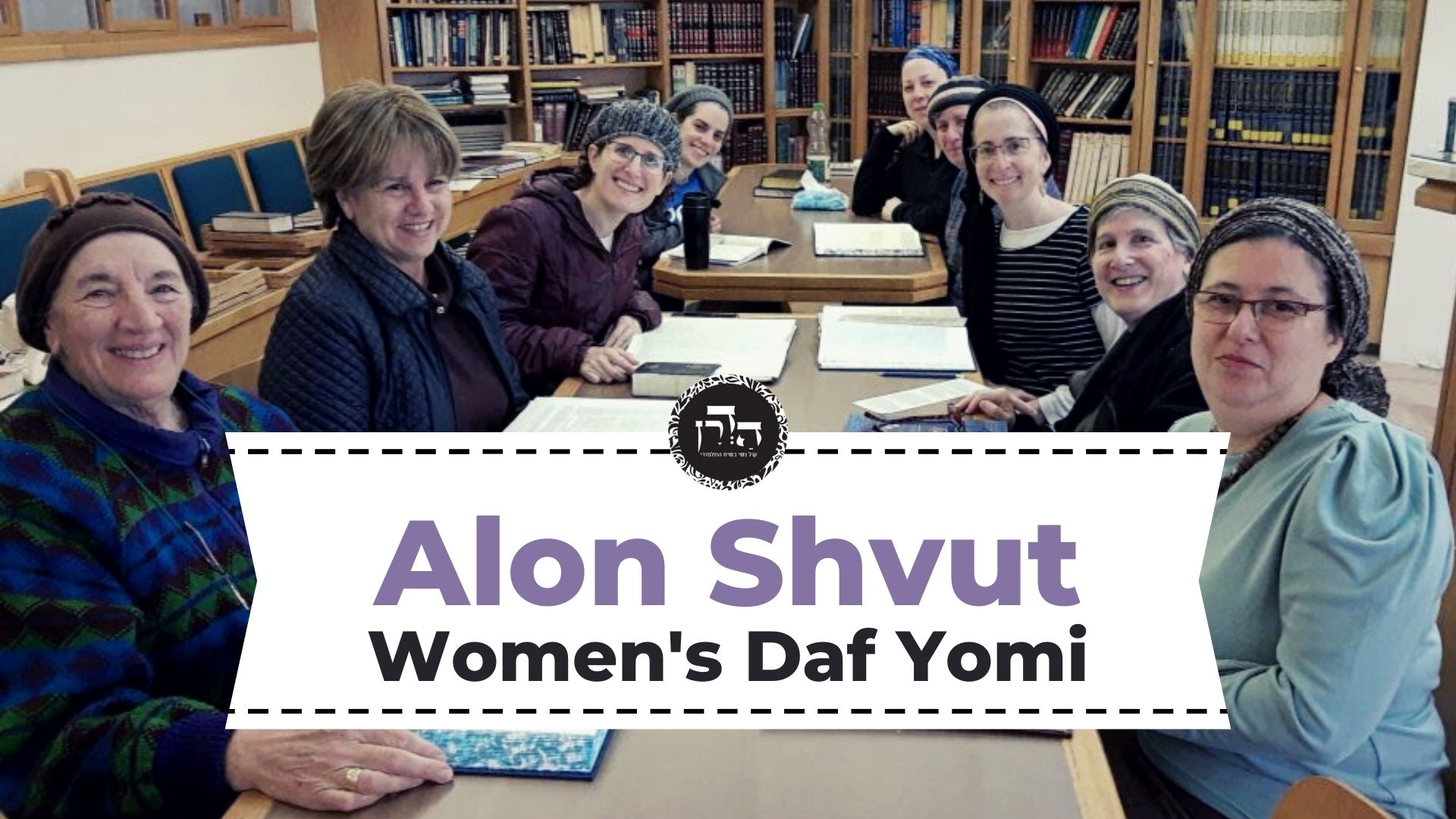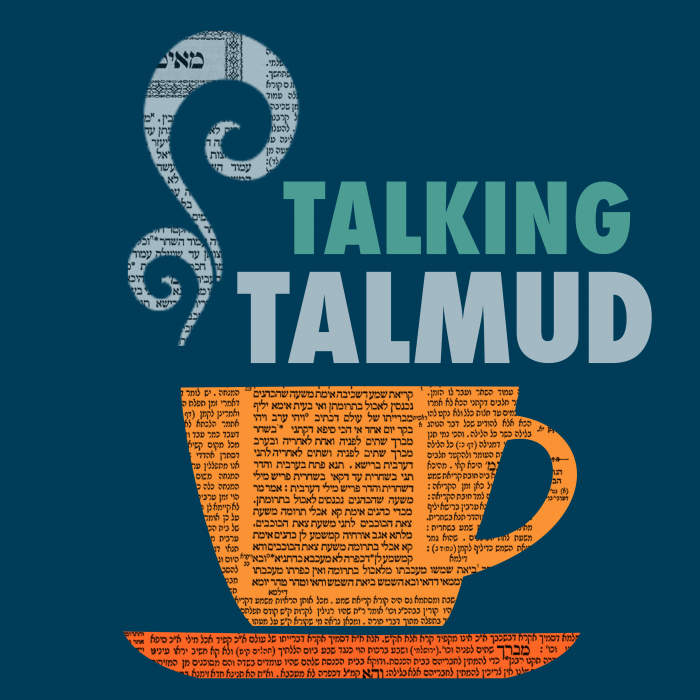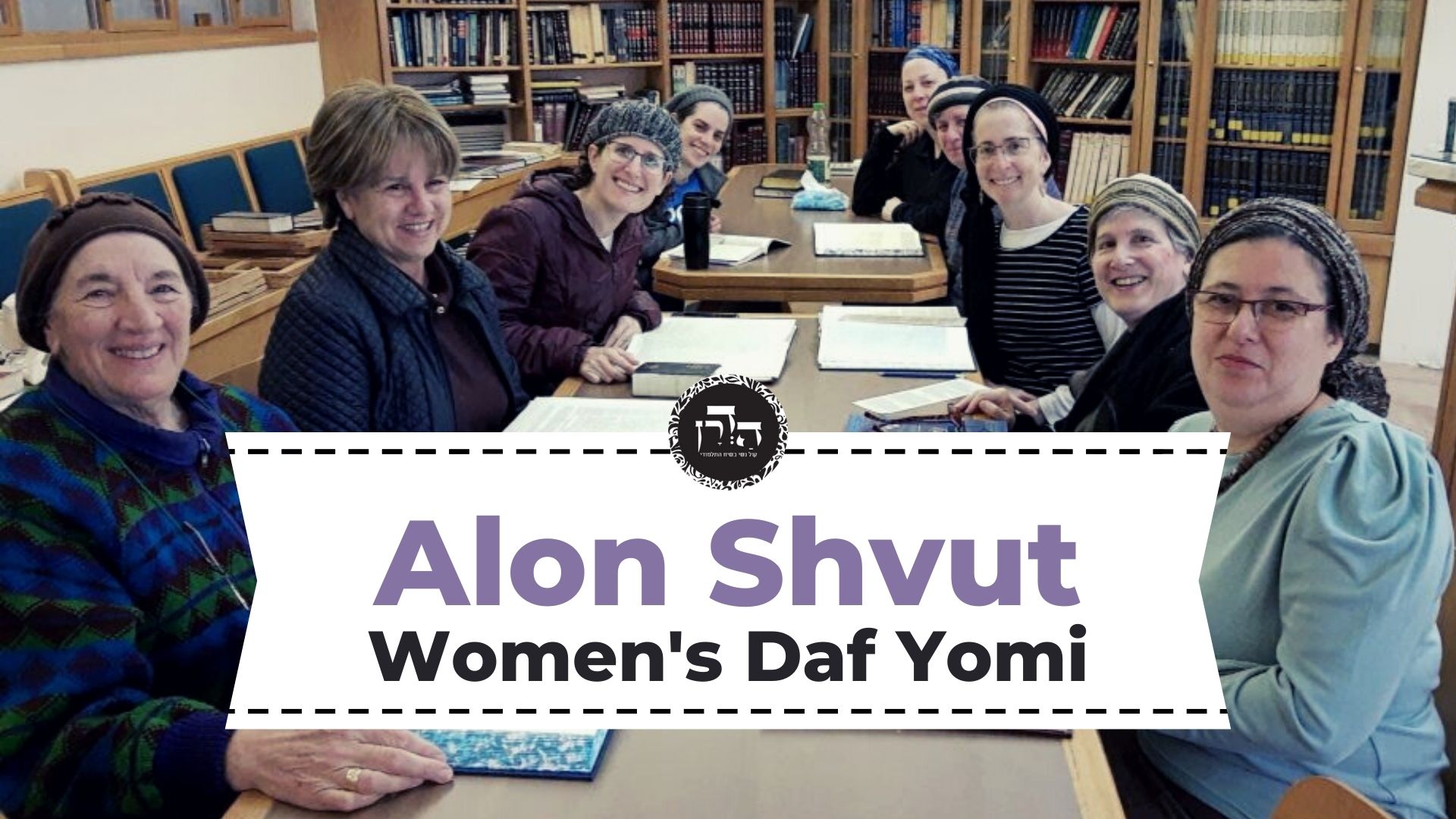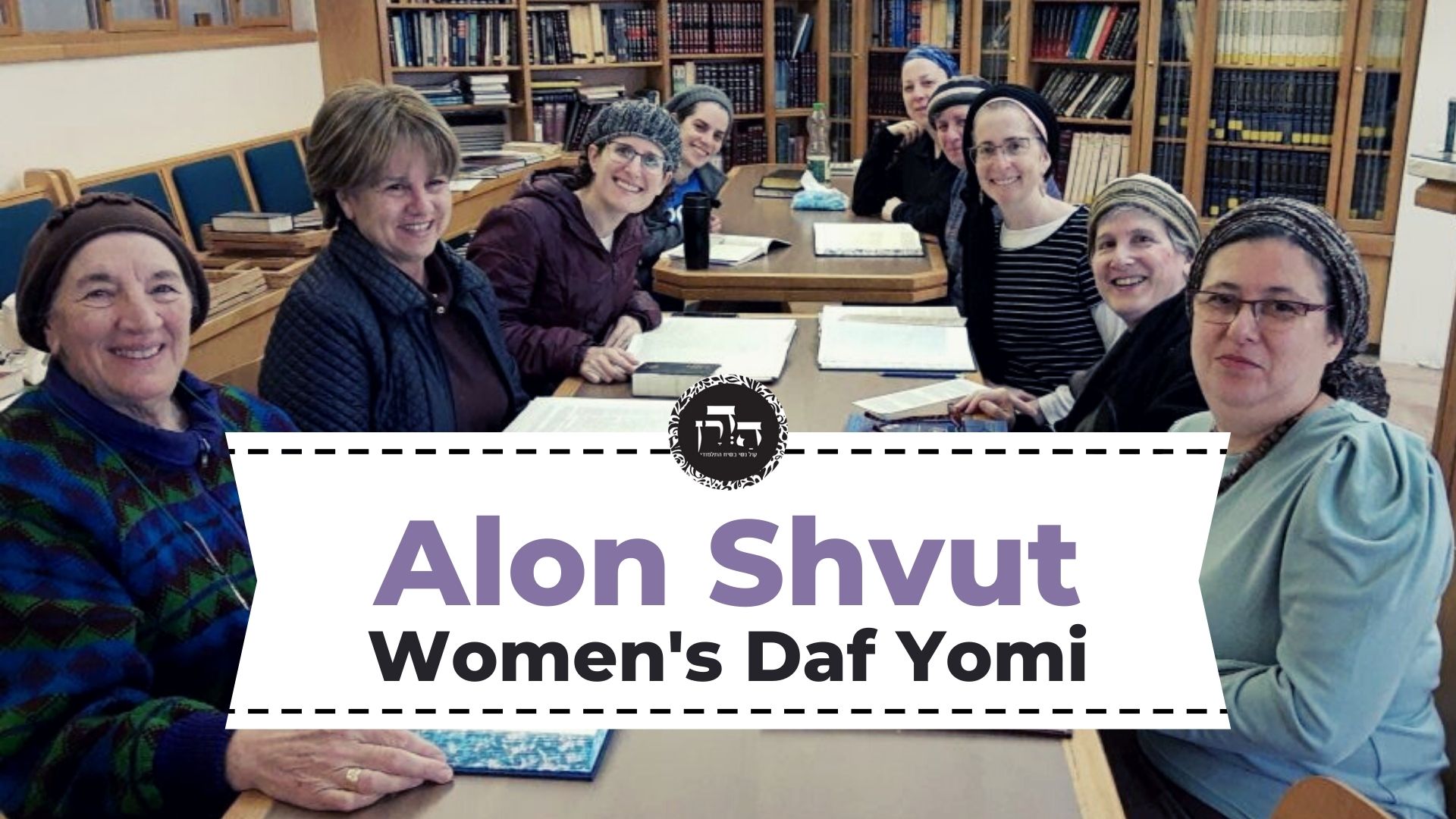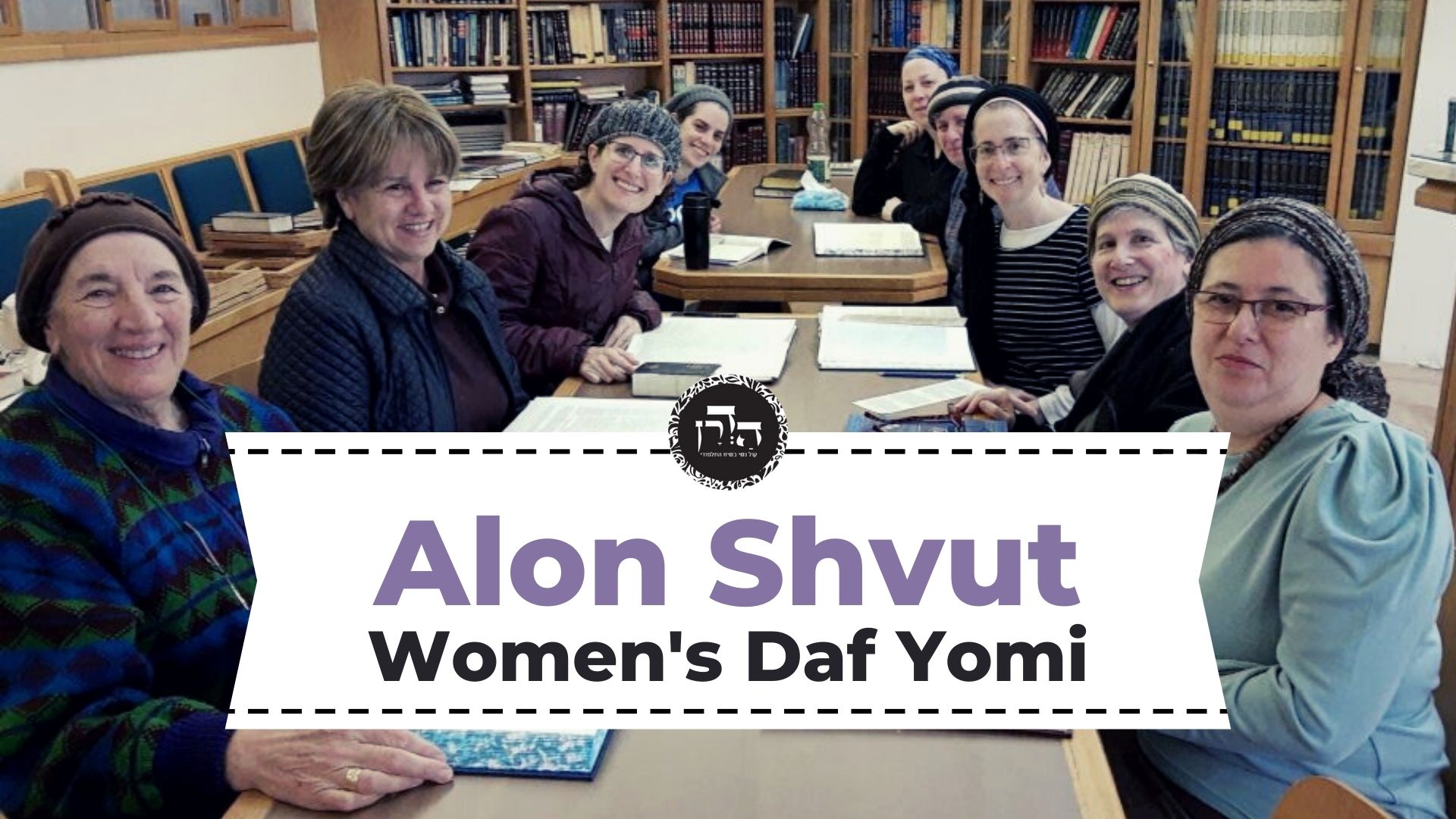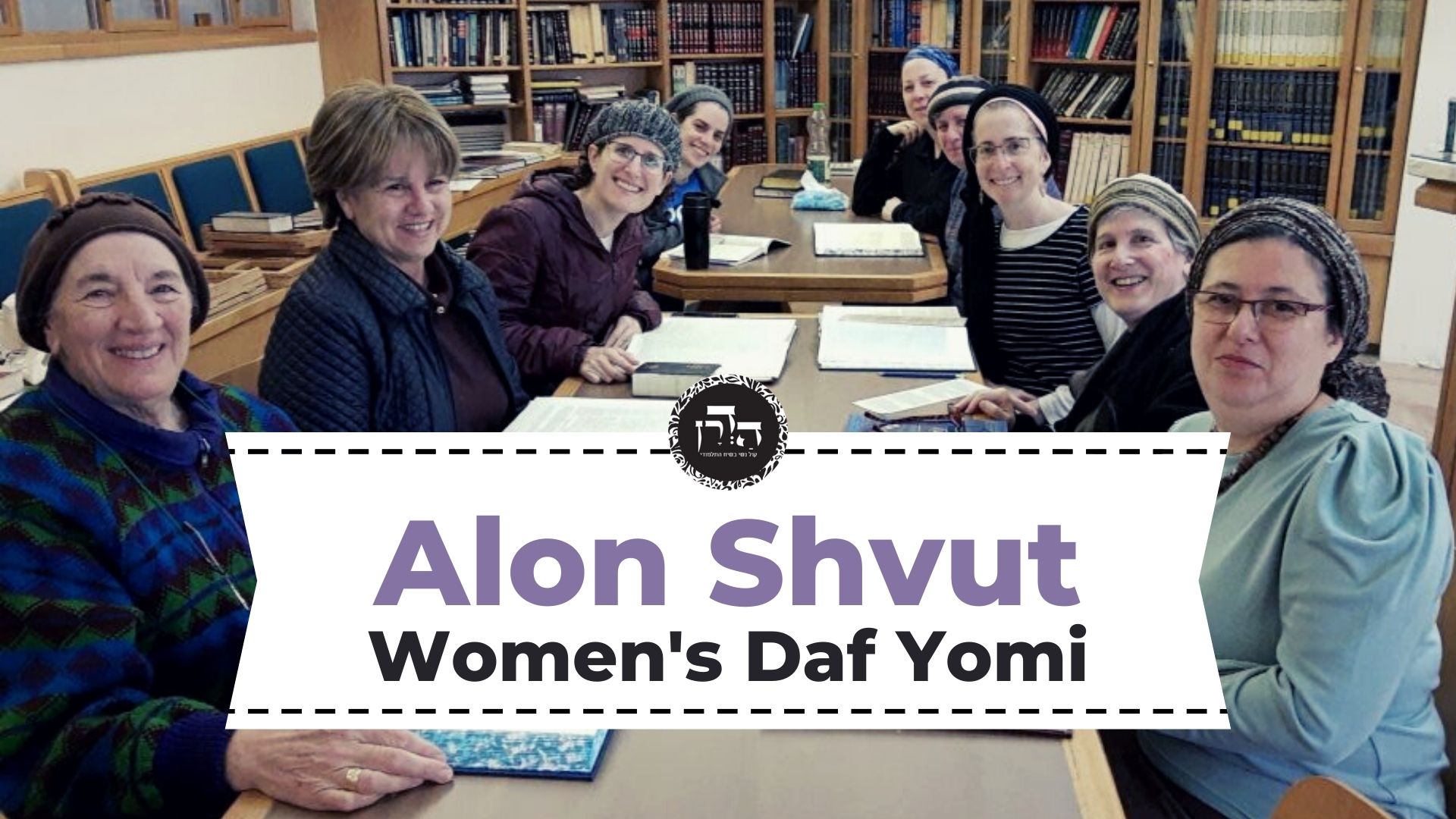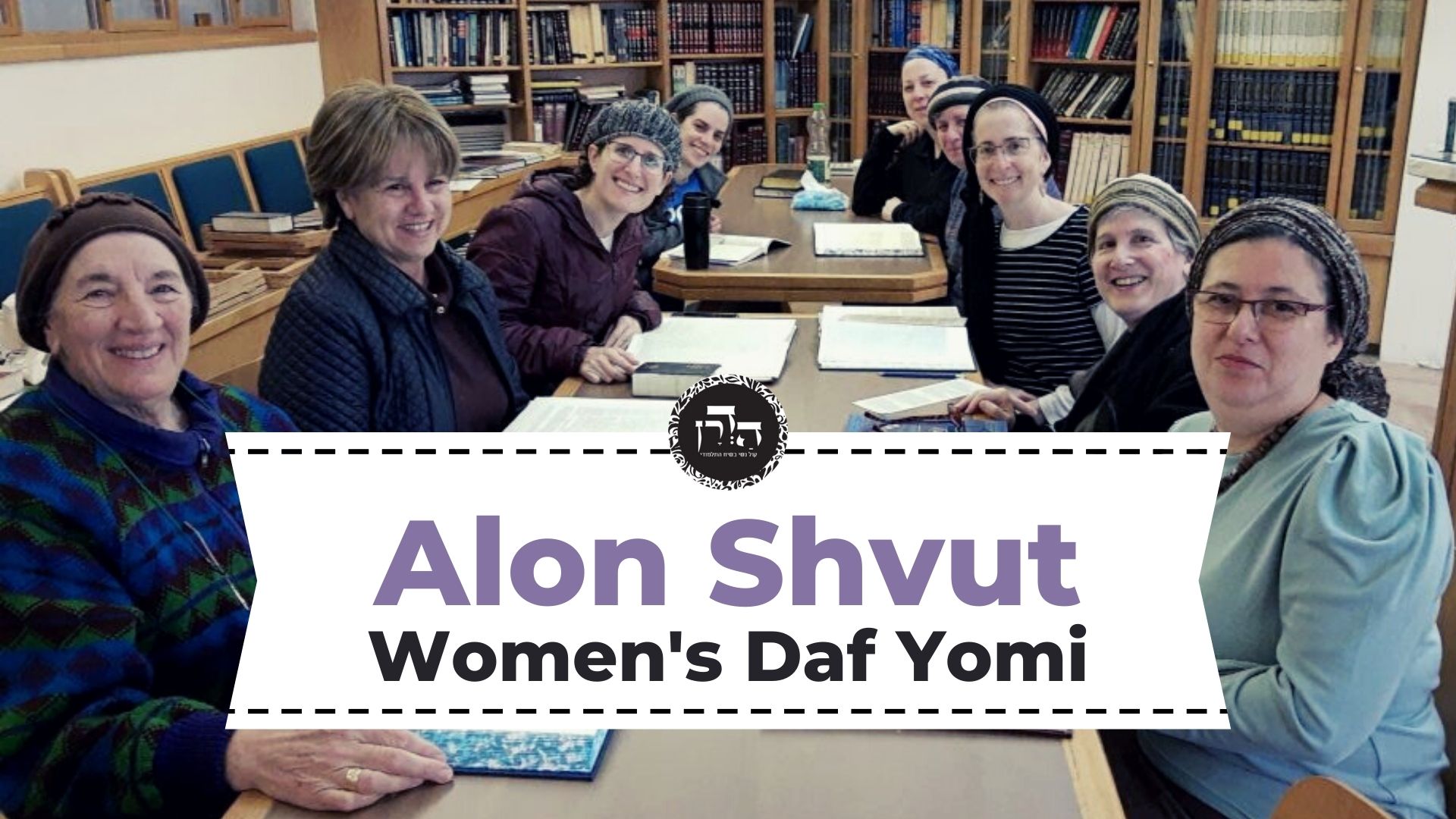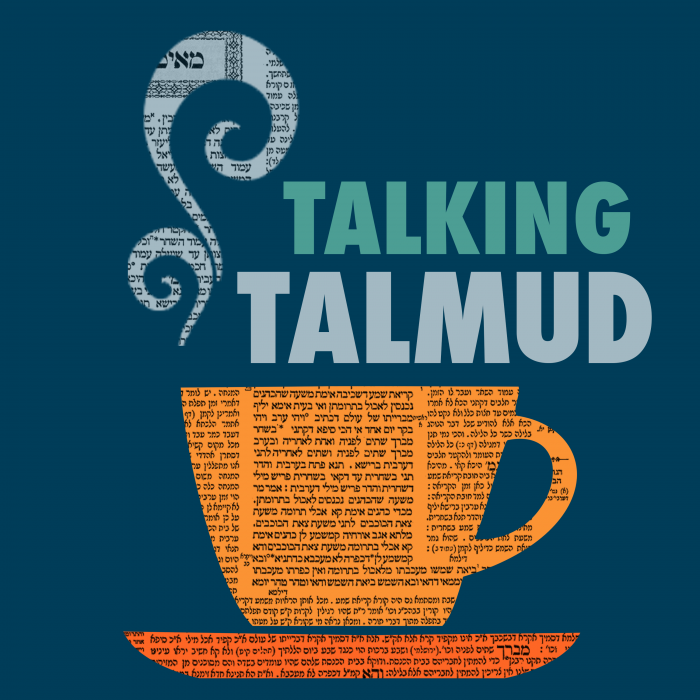Sukkah 55
וְאָמַר רַבִּי יוֹחָנָן: לֵידַע שֶׁהוּקְבַּע רֹאשׁ חוֹדֶשׁ בִּזְמַנּוֹ. תְּרֵי הֶיכֵּירָא עָבְדִינַן. דְּחָזֵי הַאי — חָזֵי, וְחָזֵי בְּהַאי — חָזֵי.
And Rabbi Yoḥanan said: Why was it placed in this manner? It was as an indicator for the people to know that the New Moon was established at its proper time, after the twenty-ninth day of the previous month. The Gemara answers: This is not difficult, as they implemented two indicators: One who saw this one, i.e., the sequence of the songs, saw it; and one who saw that one, i.e., where the fats were placed, saw it, and there is no contradiction.
מֵיתִיבִי, דְּתָנֵי רָבָא בַּר שְׁמוּאֵל: יָכוֹל כְּשֵׁם שֶׁתּוֹקְעִין עַל שַׁבָּת בִּפְנֵי עַצְמוֹ וְעַל רֹאשׁ חֹדֶשׁ בִּפְנֵי עַצְמוֹ, כָּךְ יִהְיוּ תּוֹקְעִין עַל כׇּל מוּסָף וּמוּסָף — תַּלְמוּד לוֹמַר: ״וּבְרָאשֵׁי חׇדְשֵׁיכֶם״, תְּיוּבְתָּא דְּרַבִּי אַחָא! תְּיוּבְתָּא.
The Gemara raises another objection to the opinion of Rabbi Aḥa, as Rava bar Shmuel taught this baraita: I might have thought that just as when Shabbat and the New Moon do not coincide they sound the trumpets for the additional Shabbat offering in and of itself, and for the additional New Moon offering in and of itself, so too would they sound the trumpets for each and every additional offering when the days coincide. Therefore, the verse states: “And on the day of your rejoicing, and at your appointed times, and on your New Moons, and you shall sound the trumpets for your burnt-offerings and your peace-offerings, and they will be a memorial for you before your God. I am the Lord your God” (Numbers 10:10), indicating that one blast is sounded for all. The Gemara suggests: This is a conclusive refutation of the opinion of Rabbi Aḥa. The Gemara concludes: Indeed, it is a conclusive refutation.
מַאי תַּלְמוּדָא? אָמַר אַבָּיֵי, אָמַר קְרָא: ״וּבְרָאשֵׁי חׇדְשֵׁיכֶם״ — הוּקְּשׁוּ כׇּל חֳדָשִׁים כּוּלָּם זֶה לָזֶה. רַב אָשֵׁי אָמַר: כְּתִיב ״חׇדְשְׁכֶם״, וּכְתִיב ״וּבְרָאשֵׁי״ — וְאֵיזֶה חֹדֶשׁ שֶׁיֵּשׁ לוֹ שְׁנֵי רָאשִׁים, הֱוֵי אוֹמֵר: זֶה רֹאשׁ הַשָּׁנָה, וְאָמַר רַחֲמָנָא ״חׇדְשְׁכֶם״, חַד הִיא.
Since the baraita was cited, the Gemara asks: What is the derivation cited in this baraita? How does the phrase: And on your New Moons, prove that the trumpets are sounded once for all the additional offerings? Abaye said: The verse states: “And on your New Moons,” in plural, indicating that all the months are equated to each other, and just as on a typical New Moon the trumpets are sounded once for the additional offering, so too when Shabbat and the New Moon coincide the trumpets are sounded once and no more. Rav Ashi said that in this verse it is written: Your moon [ḥodshekhem], without a yod, in the singular, and in the same verse it is written: “And on your new [uverashei],” in the plural. And which is the month that has two new beginnings? You must say it is Rosh HaShana, which is the beginning of both the new year and the new month. And yet the Merciful One says: Your moon, in the singular, indicating it is one and the trumpets are sounded once.
וְעוֹד, תַּנְיָא: בְּחוּלּוֹ שֶׁל מוֹעֵד, בָּרִאשׁוֹן מֶה הָיוּ אוֹמְרִים: ״הָבוּ לַה׳ בְּנֵי אֵלִים״. בַּשֵּׁנִי מֶה הָיוּ אוֹמְרִים: ״וְלָרָשָׁע אָמַר אֱלֹהִים״. בַּשְּׁלִישִׁי מֶה הָיוּ אוֹמְרִים: ״מִי יָקוּם לִי עִם מְרֵעִים״.
And furthermore, contrary to the statement of Rabbi Aḥa, it was taught in a baraita: On the intermediate days of the Festival, on the first day, what would they say as the song accompanying the offering on that day? “Ascribe [havu] unto the Lord, O you sons of might” (Psalms 29:1). On the second day, what would they say? The psalm that contains the verse: “But unto the wicked [velarasha] God says: What have you to do to declare My statutes?” (Psalms 50:16). On the third day, what would they say? The psalm containing the verse: “Who [mi] will rise up for me against the evildoers?” (Psalms 94:16).
בָּרְבִיעִי מֶה הָיוּ אוֹמְרִים: ״בִּינוּ בּוֹעֲרִים בָּעָם״. בַּחֲמִישִׁי מֶה הָיוּ אוֹמְרִים: ״הֲסִירוֹתִי מִסֵּבֶל שִׁכְמוֹ״. בַּשִּׁשִּׁי מֶה הָיוּ אוֹמְרִים: ״יִמּוֹטוּ כׇּל מוֹסְדֵי אָרֶץ״. וְאִם חָל שַׁבָּת בְּאֶחָד מֵהֶם, ״יִמּוֹטוּ״ יִדָּחֶה.
On the fourth day, what would they say? “Consider [binu], you brutish among the people” (Psalms 94:8). On the fifth day, what would they say? “I removed [hasiroti] his shoulder from the burden” (Psalms 81:7). On the sixth day, what would they say? “All the foundations of the earth are moved [yimotu]” (Psalms 82:5). And if Shabbat occurred on any of the intermediate days of the Festival, since Shabbat has its own song (Psalms 92), the last of the songs of the intermediate days, i.e., “All the foundations of the earth are moved,” is superseded, and all the other songs are recited in their proper sequence.
רַב סָפְרָא מַנַּח בְּהוּ סִימָנָא: ״הוּמְבָּהֵ״י״. רַב פָּפָּא מַנַּח בְּהוּ סִימָנָא: ״הוּמְהָבֵּ״י״. וְסִימָנָךְ, ״אַמְבּוּהָא דְסָפְרֵי״.
Rav Safra established a mnemonic for the sequence of the psalms recited during the intermediate days of the Festival: Heh, vav, mem, beit, heh, yod, the first letters of the transliterated word in the verses cited. Rav Pappa established a different mnemonic for a different sequence of the Psalms: Heh, vav, mem, heh, beit, yod, as in his opinion, the psalm containing: “I removed” is recited before the psalm containing: “Consider.” The Gemara notes: A mnemonic to identify which amora established which mnemonic is the expression: Convoy [ambuha] of scribes [desafrei], as the spelling of ambuha is like the mnemonic of Rav Safra.
תְּיוּבְתָּא דְּרַבִּי אַחָא בַּר חֲנִינָא! תְּיוּבְתָּא. וְהָא רַבִּי אַחָא בַּר חֲנִינָא קְרָא וּמַתְנִיתָא קָאָמַר?
The Gemara concludes: This baraita is a conclusive refutation of the opinion of Rabbi Aḥa bar Ḥanina, as on Shabbat the song for Shabbat was recited alone without the song for the Festival, and similarly, separate trumpet blasts are not sounded for the various additional offerings. Rabbi Aḥa’s opinion was rejected based on several sources. The Gemara asks: But didn’t Rabbi Aḥa say a verse and a baraita in support of his opinion? How can those citations be rejected?
אָמַר רָבִינָא: לוֹמַר שֶׁמַּאֲרִיכִין בִּתְקִיעוֹת. רַבָּנַן דְּקֵיסָרִי מִשְּׁמֵיהּ דְּרַבִּי אַחָא אָמְרִי: לוֹמַר שֶׁמַּרְבֶּה בְּתוֹקְעִין.
Ravina said: The verse and the baraita that he cited do not teach that trumpet blasts were sounded for each additional offering. Rather, they come to say that one extends the duration of the blasts to honor the added additional offerings, but does not sound even one additional blast. The Sages of Caesarea, in the name of Rabbi Aḥa, said: The verse and the baraita cited by Rabbi Aḥa come to say that one increases the number of trumpeters to honor the added additional offerings, but not the number of blasts sounded.
וַאֲנַן, דְּאִית לַן תְּרֵי יוֹמֵי, הֵיכִי עָבְדִינַן? אַבָּיֵי אָמַר: שֵׁנִי יִדָּחֶה.
Apropos the psalms recited during the Festival, the Gemara asks: And we, outside Eretz Yisrael, who have two days of Festival due to the uncertainty, as well as uncertainty with regard to each of the intermediate days, how do we conduct ourselves with regard to the mention of the additional offerings in the additional prayer of the Festival during the intermediate days, and with regard to Torah reading on those days? Abaye said: Mention of the second day will be superseded. Since the first of the intermediate days outside Eretz Yisrael is the third day of the Festival in Eretz Yisrael, the additional offering for the third day alone is mentioned, and the offerings for the fourth day on the fourth day, etc. No mention is made of the second day outside Eretz Yisrael.
רָבָא אָמַר: שְׁבִיעִי יִדָּחֶה. תַּנְיָא כְּוָתֵיהּ דְּרָבָא: אִם חָל שַׁבָּת לִהְיוֹת בְּאֶחָד מֵהֶן, ״יִמּוֹטוּ״ יִדָּחֶה.
Rava said: Mention of the seventh day will be superseded. On the first of the intermediate days outside Eretz Yisrael, the third day of the Festival, the passage beginning “And on the second day” (Numbers 29:17) is mentioned in the additional Amida prayer and read in the Torah, and on each succeeding day the succeeding passage is mentioned and read. There is no mention of the seventh day on the eighth day, as that is no longer Sukkot but rather the Eighth Day of Assembly. The Gemara notes: A baraita was taught in accordance with the opinion of Rava: And if Shabbat occurs on any of the intermediate days of the Festival, the song of the seventh day of Sukkot: “All the foundations of the earth are moved,” is superseded.
אַתְקִין אַמֵּימָר בִּנְהַרְדְּעָא, דִּמְדַלְּגִי דַּלּוֹגֵי.
The Gemara cites a third opinion: Ameimar instituted in his city of Neharde’a that during the intermediate days, one repeats the second of the additional offerings that he mentioned the day before and adds the additional offerings of the subsequent day. On the first of the intermediate days in the Diaspora, one mentions the additional offerings of both the second and third days of Sukkot. On the second of the intermediate days, one repeats the verses of the third day of Sukkot and adds the verses of the fourth day.
מַתְנִי׳ יוֹם טוֹב הָרִאשׁוֹן שֶׁל חַג הָיוּ שָׁם שְׁלֹשָׁה עָשָׂר פָּרִים, אֵילִים שְׁנַיִם וְשָׂעִיר אֶחָד. נִשְׁתַּיְּירוּ שָׁם אַרְבָּעָה עָשָׂר כְּבָשִׂים לִשְׁמוֹנֶה מִשְׁמָרוֹת. בְּיוֹם רִאשׁוֹן, שִׁשָּׁה מַקְרִיבִין שְׁנַיִם שְׁנַיִם. וְהַשְּׁאָר, אֶחָד אֶחָד.
MISHNA: On the first Festival day of Sukkot there were thirteen bulls, two rams, and one goat there. The mishna proceeds to discuss the division of labor for the Festival offerings among the twenty-four priestly watches, all of which serve in the Temple on the pilgrimage Festivals. The sixteen offerings mentioned above were divided among sixteen priestly watches, one offering per watch. Fourteen sheep remained to be divided among the eight remaining watches. On the first day of the Festival, six of the eight remaining watches sacrifice two sheep each for a total of twelve, and the remaining two watches sacrifice one sheep each.
בַּשֵּׁנִי, חֲמִשָּׁה מַקְרִיבִין שְׁנַיִם שְׁנַיִם. וְהַשְּׁאָר, אֶחָד אֶחָד. בַּשְּׁלִישִׁי, אַרְבָּעָה מַקְרִיבִין שְׁנַיִם שְׁנַיִם. וְהַשְּׁאָר, אֶחָד אֶחָד.
On the second day of the Festival, i.e., the first day of the intermediate days, when twelve bulls were sacrificed, fifteen of the priestly watches sacrifice the bulls, rams, and goat, five of the remaining watches sacrifice two sheep each, and the remaining four watches sacrifice one sheep each. On the third day of the Festival, when eleven bulls were sacrificed, fourteen of the priestly watches sacrifice the bulls, rams, and goat, four of the remaining watches sacrifice two sheep each, and the remaining six watches sacrifice one sheep each.
בָּרְבִיעִי, שְׁלֹשָׁה מַקְרִיבִין שְׁנַיִם שְׁנַיִם. וְהַשְּׁאָר, אֶחָד אֶחָד. בַּחֲמִישִׁי, שְׁנַיִם מַקְרִיבִין שְׁנַיִם שְׁנַיִם. וְהַשְּׁאָר, אֶחָד אֶחָד. בַּשִּׁשִּׁי, אֶחָד מַקְרִיב שְׁנַיִם. וְהַשְּׁאָר, אֶחָד אֶחָד.
On the fourth day of the Festival, when ten bulls were sacrificed, thirteen of the priestly watches sacrifice the bulls, rams, and goat, three of the remaining watches sacrifice two sheep each, and the remaining eight watches sacrifice one sheep each. On the fifth day, when nine bulls were sacrificed, twelve watches sacrifice the bulls, rams, and goat, two of the twelve remaining watches sacrifice two sheep each, and the remaining ten watches sacrifice one sheep each. On the sixth day, when eight bulls were sacrificed, eleven watches sacrifice the bulls, rams, and goat, one of the remaining watches sacrifices two sheep, and the remaining twelve watches sacrifice one sheep each.
בַּשְּׁבִיעִי, כּוּלָּן שָׁוִין. בַּשְּׁמִינִי, חָזְרוּ לַפַּיִיס כְּבָרְגָלִים. אָמְרוּ: מִי שֶׁהִקְרִיב פָּרִים הַיּוֹם — לֹא יַקְרִיב לְמָחָר, אֶלָּא חוֹזְרִין חֲלִילָה.
On the seventh day they are all equal and bring one offering each. On the eighth day, when there was a completely different configuration of offerings, they returned to the standard lottery system used to determine which of the priestly watches would sacrifice the offerings, as they did on the other pilgrimage Festivals, which do not have as many offerings as does Sukkot. They said about the ordering of the priestly watches: One who sacrificed bulls today will not sacrifice bulls tomorrow; rather, they will sacrifice one of the other types of offerings. They rotate, so that each of the watches will have the opportunity to sacrifice bulls as well as other animals.
גְּמָ׳ נֵימָא מַתְנִיתִין רַבִּי הִיא וְלָא רַבָּנַן? דְּתַנְיָא: פַּר הַבָּא בַּשְּׁמִינִי — בַּתְּחִילָּה מְפַיְּסִין עָלָיו, דִּבְרֵי רַבִּי. וַחֲכָמִים אוֹמְרִים: אַחַת מִשְׁתֵּי מִשְׁמָרוֹת דְּלֹא שִׁלְּשׁוּ בְּפָרִים, עוֹשָׂה אוֹתוֹ.
GEMARA: The Gemara suggests: Let us say that the mishna that says that on the eighth day they returned to the standard lottery of the other pilgrimage Festivals is according to Rabbi Yehuda HaNasi and not according to the Rabbis. As it is taught in a baraita: To determine the priestly watch that would sacrifice the bull that comes as an additional offering on the Eighth Day of Assembly, they draw lots over it from the beginning; this is the statement of Rabbi Yehuda HaNasi. And the Rabbis say: One of the two watches that did not sacrifice three bulls during Sukkot sacrifices it. Only two of the twenty-four watches sacrifices two bulls over the course of Sukkot. Each of the other watches sacrifices three bulls. Since the mishna mentions that a lottery was held, apparently the mishna is in accordance with the opinion of Rabbi Yehuda HaNasi.
אֲפִילּוּ תֵּימָא רַבָּנַן, אַטּוּ שְׁתֵּי מִשְׁמָרוֹת לָא אַפּוֹסֵי בָּעֵי?
The Gemara rejects this suggestion: Even if you say that it is in accordance with the opinion of the Rabbis, is that to say that the two remaining priestly watches are not required to draw lots to determine which will merit sacrificing the bull?
כְּמַאן אָזְלָא הָא דְּתַנְיָא: כׇּל הַמִּשְׁמָרוֹת שׁוֹנוֹת וּמְשַׁלְּשׁוֹת, חוּץ מִשְּׁנֵי מִשְׁמָרוֹת שֶׁשּׁוֹנוֹת וְאֵין מְשַׁלְּשׁוֹת? נֵימָא רַבִּי וְלָא רַבָּנַן! אֲפִילּוּ תֵּימָא רַבָּנַן: מַאי לֹא שִׁלְּשׁוּ — בְּפָרֵי הַחַג.
The Gemara asks: In accordance with whose opinion is that which is taught in a baraita: All of the priestly watches sacrifice a bull twice and three times, except for two watches that sacrifice a bull twice and do not sacrifice a bull three times? Let us say that it is in accordance with the opinion of Rabbi Yehuda HaNasi and not in accordance with the opinion of the Rabbis, as they hold that one of those watches sacrifices a third bull on the Eighth Day of Assembly. The Gemara rejects this suggestion: Even if you say that it is in accordance with the opinion of the Rabbis; what is the meaning of the phrase: They did not sacrifice a bull three times? It means that with regard to the bulls of the festival of Sukkot they did not sacrifice a bull three times.
וּמַאי קָא מַשְׁמַע לַן! הָא קָא מַשְׁמַע לַן: מִי שֶׁהִקְרִיב פָּרִים הַיּוֹם — לֹא יַקְרִיב לְמָחָר, אֶלָּא חוֹזְרִין חֲלִילָה.
The Gemara asks: With regard to the bulls sacrificed on Sukkot, what does the baraita teach us? It is a simple calculation that seventy bulls divided by twenty-four watches leaves two watches that sacrificed only two bulls. The Gemara answers: This is what the baraita comes to teach us: One who sacrificed bulls today will not sacrifice bulls tomorrow; rather, they rotate. Therefore, each watch sacrifices at least two bulls, and most of them sacrifice three.
אָמַר רַבִּי (אֶלְעָזָר): הָנֵי שִׁבְעִים פָּרִים כְּנֶגֶד מִי — כְּנֶגֶד שִׁבְעִים אוּמּוֹת. פַּר יְחִידִי לָמָּה — כְּנֶגֶד אוּמָּה יְחִידָה.
Rabbi Elazar said: These seventy bulls that are sacrificed as additional offerings over the course of the seven days of Sukkot, to what do they correspond? They correspond to the seventy nations of the world, and are brought to atone for their sins and to hasten world peace. Why is a single bull sacrificed on the Eighth Day of Assembly? It corresponds to the singular nation, Israel.
מָשָׁל לְמֶלֶךְ בָּשָׂר וָדָם שֶׁאָמַר לַעֲבָדָיו: עֲשׂוּ לִי סְעוּדָה גְּדוֹלָה. לְיוֹם אַחֲרוֹן אָמַר לְאוֹהֲבוֹ: עֲשֵׂה לִי סְעוּדָה קְטַנָּה כְּדֵי שֶׁאֵהָנֶה מִמְּךָ.
The Gemara cites a parable about a king of flesh and blood who said to his servants: Prepare me a great feast that will last for several days. When the feast concluded, on the last day, he said to his beloved servant: Prepare me a small feast so that I can derive pleasure from you alone.
אָמַר רַבִּי יוֹחָנָן: אוֹי לָהֶם לַגּוֹיִים, שֶׁאִבְּדוּ — וְאֵין יוֹדְעִין מַה שֶּׁאִבְּדוּ. בִּזְמַן שֶׁבֵּית הַמִּקְדָּשׁ קַיָּים, מִזְבֵּחַ מְכַפֵּר עֲלֵיהֶן. וְעַכְשָׁיו, מִי מְכַפֵּר עֲלֵיהֶן?!
Rabbi Yoḥanan said: Woe unto the nations of the world that lost something and do not know what they lost. When the Temple is standing, the seventy bulls sacrificed on the altar during the festival of Sukkot atones for them. And now that the Temple is destroyed, who atones for them?
מַתְנִי׳ בִּשְׁלֹשָׁה פְּרָקִים בַּשָּׁנָה הָיוּ כׇּל מִשְׁמָרוֹת שָׁווֹת: בְּאֵימוּרֵי הָרְגָלִים, וּבְחִילּוּק לֶחֶם הַפָּנִים.
MISHNA: At three times during the year, all twenty-four priestly watches have equal status, in that all receive a share in the Temple service independent of the standard order of the watches and all receive a share in the accompanying gifts of the priesthood: In the portions of the offerings of the Festivals sacrificed on the altar and in the distribution of the shewbread on Shabbat during the Festivals.
בָּעֲצֶרֶת, אוֹמֵר לוֹ: הֵילָךְ מַצָּה, הֵילָךְ חָמֵץ. מִשְׁמָר שֶׁזְּמַנּוֹ קָבוּעַ, הוּא מַקְרִיב תְּמִידִין, נְדָרִים וּנְדָבוֹת, וּשְׁאָר קׇרְבְּנוֹת צִבּוּר — וּמַקְרִיב אֶת הַכֹּל.
On Shavuot that coincides with Shabbat, when the two loaves offered on Shavuot would be distributed together with the distribution of the shewbread, the priest charged with the distribution says to each priest: Here is matza from the shewbread for you, and here is leavened bread from the two loaves for you. The principle is that the priestly watch whose time is fixed during the Festival sacrifices the daily offerings during the Festival, as well as vow-offerings, free-will offerings, and all other communal offerings. And that watch sacrifices all of them even during the Festival, when other aspects of the service are shared by all the watches.
גְּמָ׳ אֵימוּרֵי הָרְגָלִים שֶׁל גָּבוֹהַּ נִינְהוּ! אָמַר רַב חִסְדָּא: מַה שֶּׁאָמוּר בָּרְגָלִים.
GEMARA: The Gemara wonders: How is it that the priests divide those portions of the Festival offerings? Don’t they belong to God, and must be placed on the altar? How do the priestly watches share these portions? Rav Ḥisda said: The mishna is referring not to portions sacrificed on the altar [eimurim] but to what was stated [amur] with regard to the pilgrimage Festivals, all those portions of the offerings that the Torah commanded to sacrifice at the Temple that are not burnt on the altar and are shared by the priests, e.g., hides of the burnt-offerings of appearance and the breast and thigh of the Festival peace-offerings.
תָּנוּ רַבָּנַן: מִנַּיִן שֶׁכׇּל הַמִּשְׁמָרוֹת שָׁווֹת בְּאֵימוּרֵי הָרְגָלִים, תַּלְמוּד לוֹמַר: ״וּבָא בְּכׇל אַוַּת נַפְשׁוֹ … וְשֵׁרֵת״. יָכוֹל אַף בִּשְׁאָר יְמוֹת הַשָּׁנָה כֵּן — תַּלְמוּד לוֹמַר: ״מֵאַחַד שְׁעָרֶיךָ״, לֹא אָמַרְתִּי אֶלָּא בְּשָׁעָה שֶׁכׇּל יִשְׂרָאֵל נִכְנָסִין בְּשַׁעַר אֶחָד.
The Sages taught: From where is it derived that all of the priestly watches have equal status in the portions of the Festival offerings? The verse states: “And if a Levite comes from any of your gates out of all Israel, where he sojourns, and comes with all the desire of his soul unto the place that the Lord shall choose; then he shall minister…as all his brethren…They shall have like portions to eat, besides the transactions of their fathers’ houses” (Deuteronomy 18:6–8). Based on these verses, one might have thought that this is the case even on the rest of the days of the year and the priestly watches would have equal status. Therefore, the verse states: From one of your gates. I said that all have equal status only when all of Israel enters through one gate, i.e., on a pilgrimage Festival.
וּבְחִילּוּק לֶחֶם הַפָּנִים כּוּ׳. תָּנוּ רַבָּנַן: מִנַּיִן שֶׁכׇּל הַמִּשְׁמָרוֹת שָׁווֹת בְּחִילּוּק לֶחֶם הַפָּנִים —
The mishna continues: And in the distribution of the shewbread on the three pilgrimage Festivals, all twenty-four priestly watches have equal status. The Sages taught: From where is it derived that all of the priestly watches have equal status in the distribution of the shewbread?



